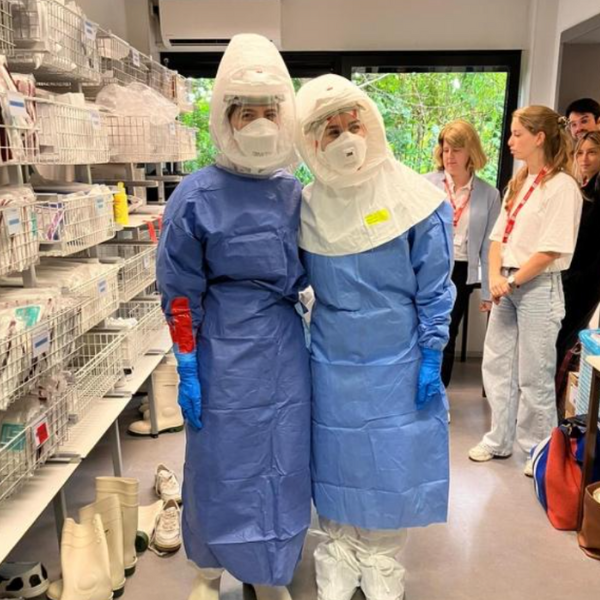Last September, two UniCamillus students participated in the first edition of the IDEALiTER Summer School. Coordinated by the Université de Paris-centre but held at the University of Antwerp in Belgium, this initiative is part of the wider European IDEAL programme, funded by Erasmus+. The aim of IDEAL is to promote doctoral training and research careers, taking into account the dimensions and constant evolution of diversity in today’s society, as well as the changing needs of the labour market.
The aim is to prepare future doctors and researchers for the new challenges arising from the increasing complexity of their work. By promoting intergenerational and intercultural exchange, the programme aims to enhance knowledge and skills, starting with questioning the relevance of individual research activities, enriching them and at the same time renewing the attractiveness of doctoral training for new generations of talent.
Specifically, IDEALiTER focused on preparing for the dangers of a pandemic. Between 19 and 22 September, 30 speakers from 15 different institutions across Europe addressed, together with 23 students from 11 countries, issues that are still fresh in everyone’s minds after the experiences of a few years ago. From hospital admissions to containment measures and vaccination plans, students, professors and healthcare professionals shared their ideas and experiences on ethical issues related to epidemics, public health crises, the management breakdown of hospital systems and the long-term impact of pandemics.
Using innovative teaching methods based on real-life case studies and interactive simulations, participants in this project were actively engaged in their work by the trainers during the three days of the Summer School. It was an opportunity for everyone to share different knowledge and experiences from different ways of studying medicine in different countries.
It was an exciting experience for two young UniCamillus medical students, Chiara Bellome and Elisa Colatosti. Both have recently started their sixth year of the MSc in Medicine and Surgery and were involved in this initiative by Professor Wolf. “I am participating in this project as an external evaluator and the coordinator in Paris invited me to send two medical students from our University. I hope this opportunity will be repeated in coming years”, said Wolf, who teaches General Pathology at UniCamillus.
“I was impressed by how many different medical protocols there are to deal with infections and viral diseases”, said Elisa about the most interesting topics covered during the Summer School. “I discovered things that are rarely explained and studied during our studies because they are very technical aspects of managing specific cases”. Among the many contributions made by the speakers, two topics in particular caught the young UniCamillus graduate’s attention: “The explanation of the importance of communication for doctors was enlightening. Working closely with people, mostly strangers and often in delicate situations, is extremely important for a doctor, who needs to understand how to relate to patients. Too often this is underestimated. I also enjoyed hearing about the Covid-19 pandemic, the mistakes that were made and what worked well. I discovered that there are really many pathogens under observation that could cause new pandemics, and it is essential to be prepared so as not to be caught unprepared again”.
Among the many positive memories of this experience, Elisa has one in particular that will inspire her future as a doctor: “I was deeply moved by the testimony of a woman, the mother of a doctor who died in Africa while working with the local population. Despite the tragedy, she thanked the Belgian health system, which means that the important work of a doctor is always recognised in some way”.
Photos taken by UniCamillus student Chiara Bellome.

